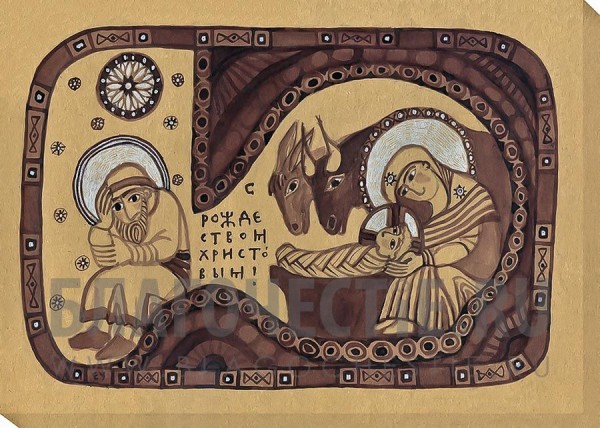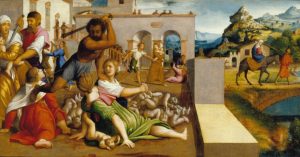We have entered the days when news pundits are asking, “Will Christmas be big this year?” When individuals ask one another, “Are you having a big Christmas this year?” It is understoood that economics are involved (as with the media). Our modern economies are greatly dependent on the massive buying that occurs between late November and late December. Christmas shopping is so good for the economy (as presently constituted) that if Christ were not so conveniently born, we would need to come up with another excuse for giving gifts.
However, though the world’s economic system seems to hang in the balance over the generosity of two months spending, this is a very little thing about Christmas. My favorite summation of Christmas (and the Incarnation as a whole) is from St. Maximus the Confessor: “The Incarnation of the Word is the cause of all things.”
This wonderfully paradoxical statement, notes that “all things were made by and for him, etc.” St. Maximus reads these words as referring to the Incarnate Christ and not to the pre-incarnate Word. It turns history inside out and establishes the incarnation of Christ as more than a temporary skirmish to free us from our temporary bonds. It is the act of God who truly completes His creation in His Pascha. The words, “It is finished,” are the words of the Creator over the whole of His creation. He foretold this, “If I be lifted up from the earth I will draw all men unto myself.” This is echoed in a more cosmic sense in the words of Ephesians’ first chapter:
having made known to us the mystery of His will, according to His good pleasure which He purposed in Himself, that in the dispensation of the fullness of the times He might gather together in one all things in Christ, both which are in heaven and which are on earth– in Him. (Eph 1:9-10)
Christmas, as the feast which celebrates the incarnation of Christ (as does the Annunciation), is the feast of the beginning of all things, and the feast of the end of all things. It is both cause and the end of all effects. And thus we will have a “big” Christmas this year, for the gift that is given us is nothing less than creation itself. Its price was nothing less than the life of God. It’s not the economy, in the way politicians think of economy. It is the oikonomia – the unrelenting love of God completing what He alone could begin and what He alone could finish.


















